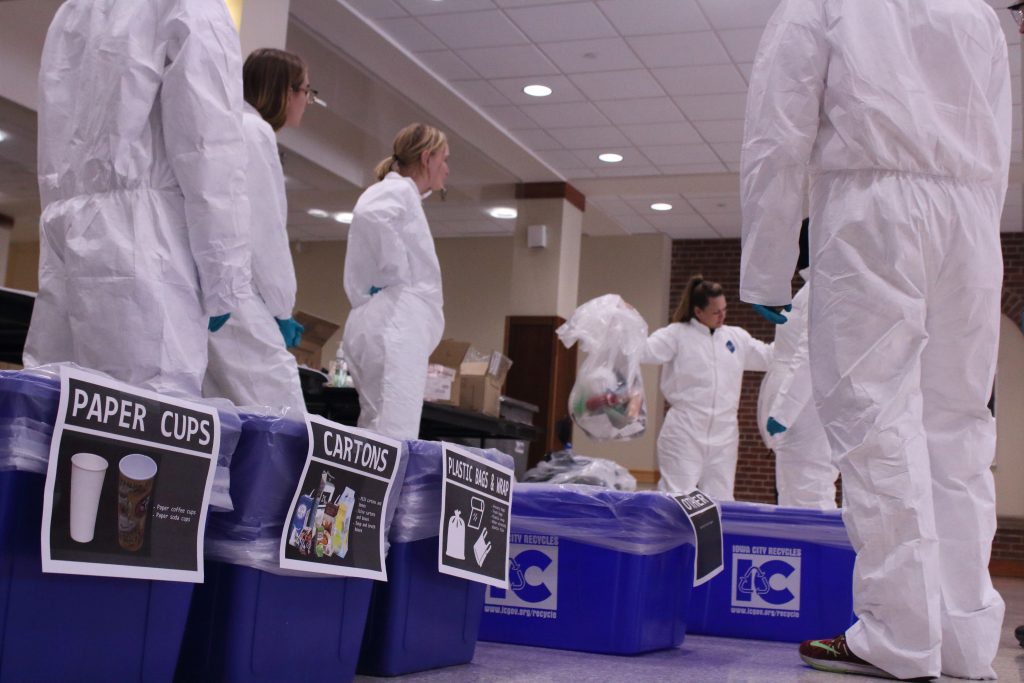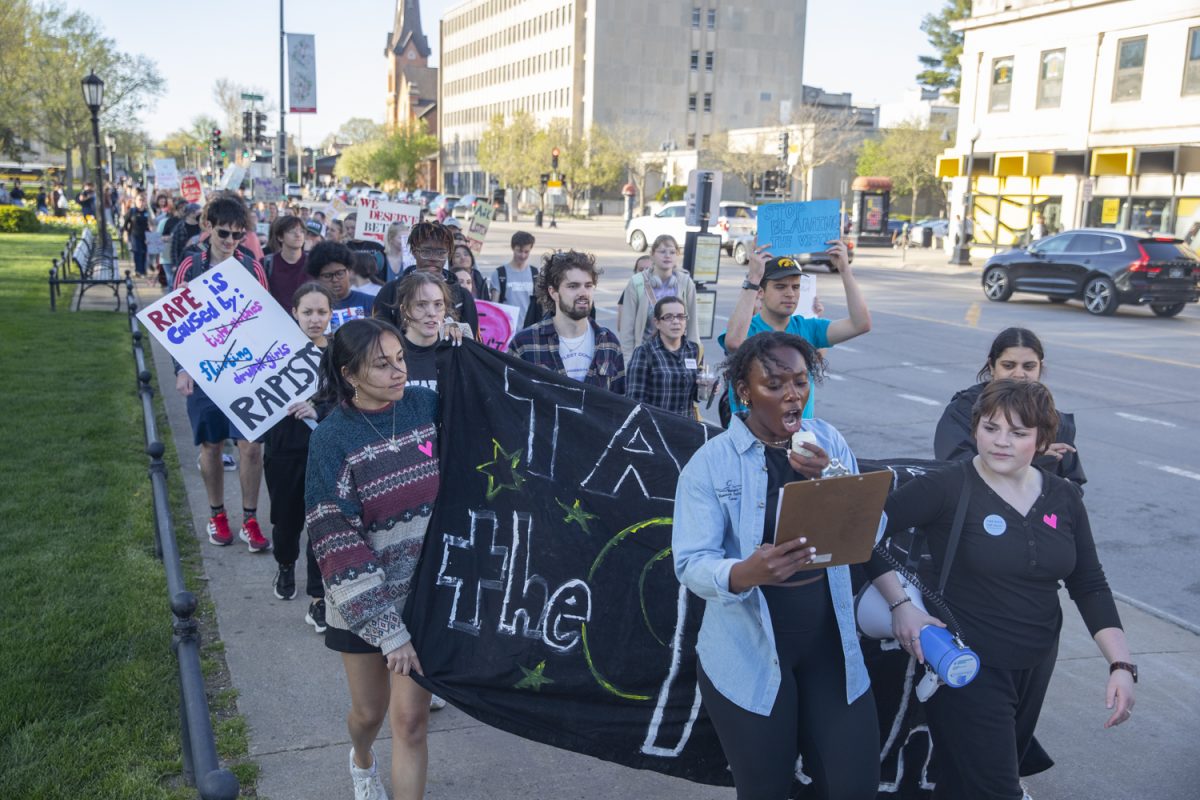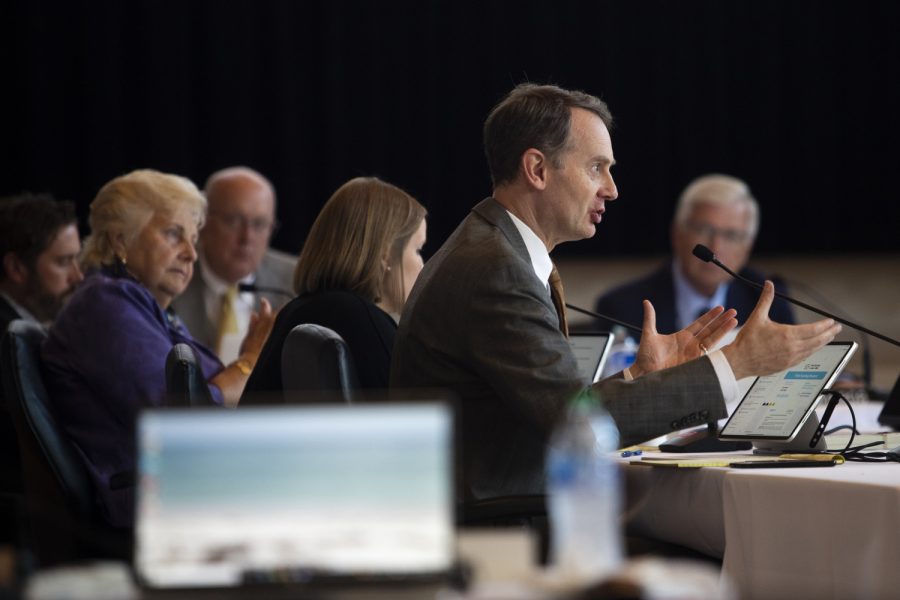One big dumpster, two small trash cans, 12 blue recycling bins, and tons of trash bags — these made up the setup of a waste audit at the IMU on Thursday afternoon.
This semester, the University of Iowa Office of Sustainability hosted its first waste audit at the IMU.
“The purpose for what we are doing is to find out how well IMU is doing for recycling and trash,” said George McCrory, the communications specialist for the Sustainability Office. “So we collect the trash from the public area of IMU, mostly downstairs.”
The Sustainability Office, McCrory said, has been doing waste audit for at least 10 years. It hosts one to two waste audits per semester, some in UIHC facilities.
“I had no clue to expect what would happen before I came here …” UI junior Bailey Baker said. “It was pretty similar as my own recycling process but on a large scale.”
The scale of the event was generally different based on the locations. This event was larger than the other ones hosted in the hospitals, McCrory said.
Elizabeth Mackenzie, the Sustainability Office recycling coordinator, said to get more student volunteers involved, the office broke the waste audit into two small sessions. There were 16 student volunteers in total, eight of them in each session.
The two sessions were broken based on the garbage sources. One was for garbage from the IMU basement, the other one was for garbage from the IMU River Room.
RELATED: UI moves against wasting away
“I should feel like it’s gross, but I don’t,” Baker said. “It might because of the protection we were wearing, like the gloves. I will definitely try it next time, but more for fun.”
The goal of a waste audit is to show people what they are throwing away and to collect data about how much could be recycled, composed or wasted, Mackenzie said.
She said the waste audit would help them do a targeted education campaign and improve it. There were 12 categories of items, and all of them loop into recycle, compost, and trash. Office members are looking for are specific items to see which were misplaced.
“For example, we find out that people used lots of paper cups,” Mackenzie said. “So it showed that it might be helpful for us to educate people more about using mugs to reduce the waste. From the data, we can know what to educate people and find out the confusion of recycling.”
It would also help office members understand how people threw these specific items into the three kinds of trash bins in IMU — trash (landfill), recycling, and compost, Mackenzie said.
“We found out there were more organic things thrown in the trash bin, even though the compost bin was just right by the trash bin …” she said. “The building assessment conjunction with waste audit will help the department to find out the confusions. ”
Buildings, for now, will continue to have inconsistent trash bins. The inconsistency of types of trash bins might be one reason behind the confusion, because different buildings offer different options, she said.
“The consistent setup might help reduce confusions,” Mackenzie said. “To have three kinds of bins, as the way in the IMU, is the right way. But it’s important to get right here in IMU first, then expand to other places.”










